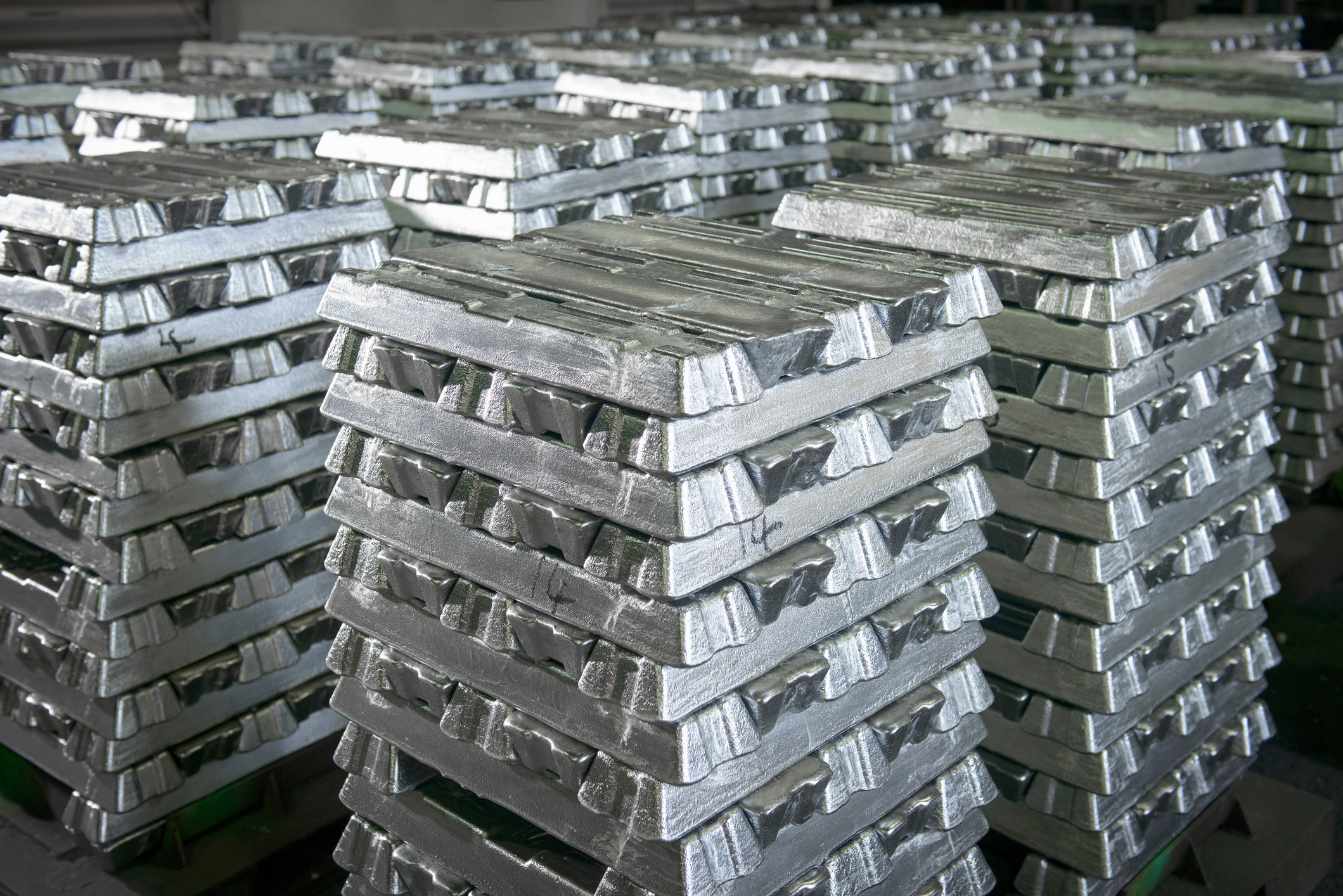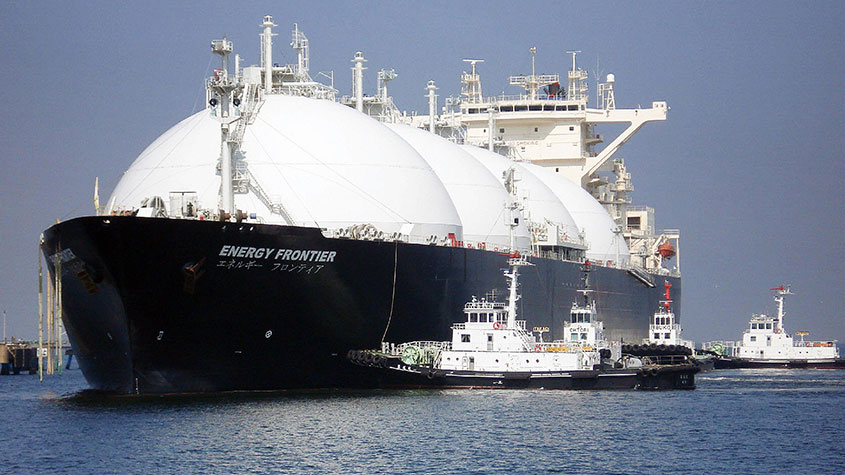Metals in meltdown: investors should buy now
Aluminium, zinc and nickel have struggled over the past few months, says David J. Stevenson. But the best time to scoop up shares in the companies that mine them is when they are out of favour.


Get the latest financial news, insights and expert analysis from our award-winning MoneyWeek team, to help you understand what really matters when it comes to your finances.
You are now subscribed
Your newsletter sign-up was successful
Want to add more newsletters?

Twice daily
MoneyWeek
Get the latest financial news, insights and expert analysis from our award-winning MoneyWeek team, to help you understand what really matters when it comes to your finances.

Four times a week
Look After My Bills
Sign up to our free money-saving newsletter, filled with the latest news and expert advice to help you find the best tips and deals for managing your bills. Start saving today!
Aluminium alloys are employed in aircraft production, cooking utensils, marine applications, drink cans and construction. The metal is vital to renewable energy, while electric-vehicle (EV) manufacturers use it to make lighter cars, prolonging battery life.
Aluminium usage in European cars increased by 18% between 2019 and 2022, says automotive consultancy Ducker Carlisle.
Aluminium is classified by the US and the EU as a “critical mineral”. In 2020, the World Bank described aluminium as a “high-impact” metal in all existing and potential green-energy technologies. Yet “you wouldn’t know it from the perilous state of primary metal production on both sides of the Atlantic”, says Reuters. So what has been the problem?
MoneyWeek
Subscribe to MoneyWeek today and get your first six magazine issues absolutely FREE

Sign up to Money Morning
Don't miss the latest investment and personal finances news, market analysis, plus money-saving tips with our free twice-daily newsletter
Don't miss the latest investment and personal finances news, market analysis, plus money-saving tips with our free twice-daily newsletter
“High energy costs, particularly in Europe, have caused multiple smelters to close or curtail output,” says Andy Home on Reuters. “Western European primary aluminium production has been sliding since 2017, but Russia’s invasion of Ukraine and the resulting spike in energy prices have accelerated the downtrend.” Carbon emissions have been another issue.
Meanwhile, US primary metal output has fallen since 2019, says the United States Geological Survey (USGS). Two out of the country’s seven domestic smelters have been mothballed, while another three are operating at reduced levels.
Global demand for aluminium will rise nearly 40% by 2030, more than for any other metal, forecasts the World Bank.
An aluminium stock to buy
Alcoa operates the world’s largest third-party alumina (aluminium oxide) business, and its portfolio of seven refineries has a highly competitive cost position and the industry’s lowest average carbon-intensity footprint.
The group’s aluminium division includes smelting, casting, and energy assets. Alcoa is also a leading producer of primary aluminium products and patented cast alloys.
Half-year results in 2023 showed a $333m net loss versus a $1bn profit for the equivalent period last year, while the shares have fallen by almost two-thirds since March 2022. Analysts expect a current-year loss.
But the balance sheet remains sound, while 2024 estimates put Alcoa on a forward price/earnings (p/e) ratio of 17, dropping to just over ten in 2025.
It may feel counter-intuitive to buy a share that has done so badly of late. But the time to invest in stocks such as Alcoa is while they are out of favour. When aluminium recovers, so will profits, together with the stock. The recovery could be just as rapid as the drop.
A vital metal for the green transition
Now to zinc. It’s the 23rd most abundant element on Earth. “Zinc is necessary to modern living,” says the USGS, “and in tonnage produced, stands fourth among all metals in world production – exceeded only by iron, aluminium and copper.”
Like aluminium, though, zinc has struggled. The price has dropped by 45% from its April 2022 peak as a potential supply surplus looms in 2023.
And so has the price of another key metal for the green transition, nickel.
“We forecast nickel prices to remain under pressure in the short term as a surplus in the global market builds and a slowing global economy mutes stainless-steel demand,” says Dutch banking group ING.
“Prices should, however, remain at elevated levels… due to nickel’s role in global energy transition. [Its] appeal to investors as a key green metal will support higher prices in the longer term.”
The global nickel market is projected to grow at a CAGR of 7.3% between 2023 and 2028, says industry watcher Fortune Business Insights. Nickel supply, by contrast, is expected to increase less rapidly.
Data analysis firm Fitch Solutions expects global nickel mine production to grow by an annual average rate of 5.1% over the medium term (between 2022 and 2026), before averaging 1.9% between 2027 and 2031.
How to invest in this key theme?
So how to play zinc and nickel? Glencore (LSE: GLEN), worth £55bn, is one of the world’s major miners. It produces and markets a wide range of metals and minerals, such as copper, cobalt, zinc, nickel and ferro-alloys. It extracts and processes zinc in Australia, Canada, South America and Kazakhstan, with smelting and refining operations worldwide.
In addition, Glencore produces some of the world’s purest nickel in Canada, Australia, Norway and New Caledonia.
Yet as base metal prices have dropped, so have Glencore’s shares. They have lost 23% since January. And the 2023 half-year results revealed a 62% year-on-year plunge in net income to $4.6bn.
Yet the balance sheet is strong, and while forecasts put the shares on a 2024 p/e of 18, that figure doesn’t factor in a base-metal price recovery. The yield is a huge 9%, although if profits remain under pressure the dividend is likely to be reduced, at least for a while.
There is, then, a strong long-term recovery case for investing in aluminium, zinc and nickel while they are out of favour. We just need to be patient.
Join us at the MoneyWeek Summit on 29.09.2023 at etc.venues St Paul's, London.
Tickets are on sale at www.moneyweeksummit.com
MoneyWeek subscribers receive a 25% discount.
Get the latest financial news, insights and expert analysis from our award-winning MoneyWeek team, to help you understand what really matters when it comes to your finances.

David Stevenson has been writing the Financial Times Adventurous Investor column for nearly 15 years and is also a regular columnist for Citywire.
He writes his own widely read Adventurous Investor SubStack newsletter at davidstevenson.substack.com
David has also had a successful career as a media entrepreneur setting up the big European fintech news and event outfit www.altfi.com as well as www.etfstream.com in the asset management space.
Before that, he was a founding partner in the Rocket Science Group, a successful corporate comms business.
David has also written a number of books on investing, funds, ETFs, and stock picking and is currently a non-executive director on a number of stockmarket-listed funds including Gresham House Energy Storage and the Aurora Investment Trust.
In what remains of his spare time he is a presiding justice on the Southampton magistrates bench.
-
 Should you buy an active ETF?
Should you buy an active ETF?ETFs are often mischaracterised as passive products, but they can be a convenient way to add active management to your portfolio
-
 Power up your pension before 5 April – easy ways to save before the tax year end
Power up your pension before 5 April – easy ways to save before the tax year endWith the end of the tax year looming, pension savers currently have a window to review and maximise what’s going into their retirement funds – we look at how
-
 No peace dividend in Trump's Ukraine plan
No peace dividend in Trump's Ukraine planOpinion An end to fighting in Ukraine will hurt defence shares in the short term, but the boom is likely to continue given US isolationism, says Matthew Lynn
-
 Europe’s new single stock market is no panacea
Europe’s new single stock market is no panaceaOpinion It is hard to see how a single European stock exchange will fix anything. Friedrich Merz is trying his hand at a failed strategy, says Matthew Lynn
-
 Gold or bitcoin: what will replace the US dollar?
Gold or bitcoin: what will replace the US dollar?Analysis As Russia and the West move further apart, there’s a growing need for a new global reserve currency. The US dollar could soon be replaced by gold or bitcoin, argues Dominic Frisby.
-
 The fallout from Europe’s energy crisis
The fallout from Europe’s energy crisisNews The soaring price of gas could see the EU impose a cap on the price of electricity generated by nuclear and renewables, while signs of strain appear in the energy derivatives market, and investors are dumping European stocks.
-
 The best way to invest in natural gas
The best way to invest in natural gasTips David Stevenson looks at the best way to invest in natural gas as the demand for the commodity surges.
-
 European stocks are ignored and cheap – but possibly not for long
European stocks are ignored and cheap – but possibly not for longNews European stocks are out of favour, with some analysts predicting their worst year since 2008. But the worst of the sell-off could be over, and European value shares in particular look appealing.
-
 Price of gas soars as Moscow turns off the taps
Price of gas soars as Moscow turns off the tapsNews As Russia cuts its gas exports to the EU, the price of natural gas continues to rise. Restricted supplies could see energy rationing and recession in Germany, Europe’s biggest economy.
-
 EU tightens the noose on Russia
EU tightens the noose on RussiaNews Brussels has proposed a ban on all Russian oil imports. Could that work? Emily Hohler reports